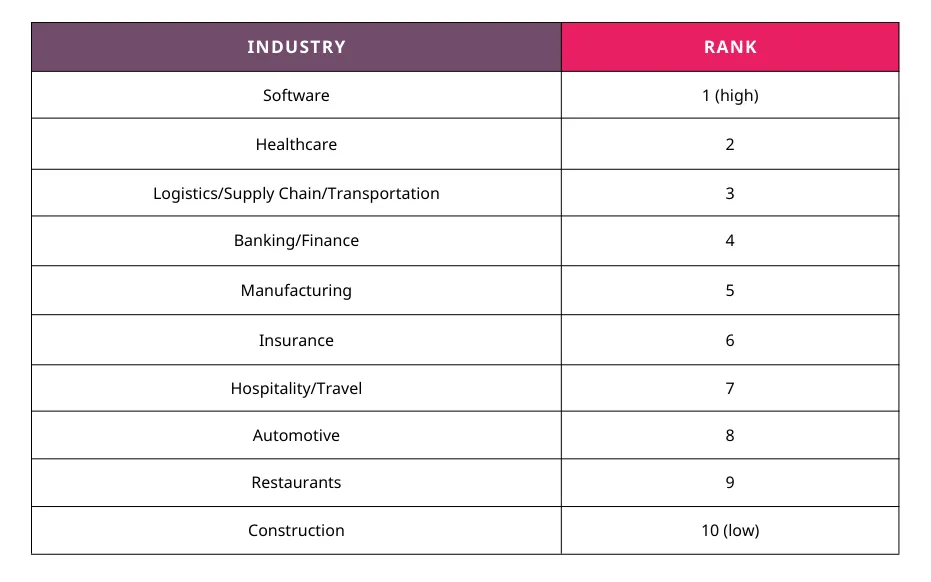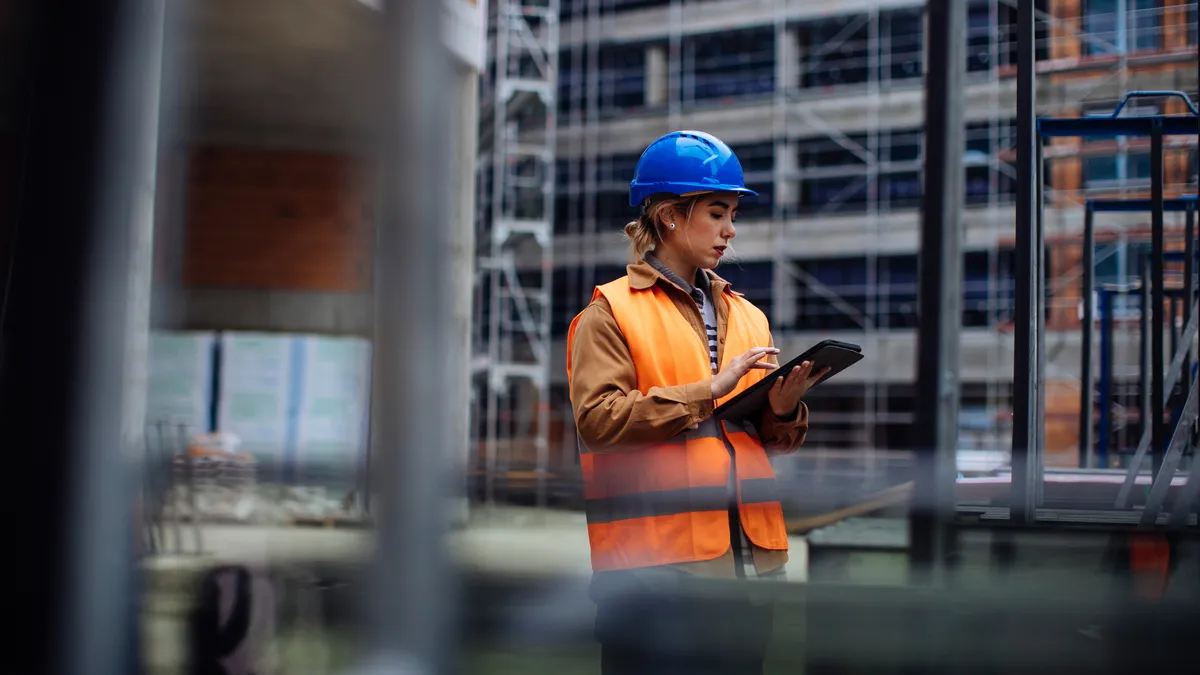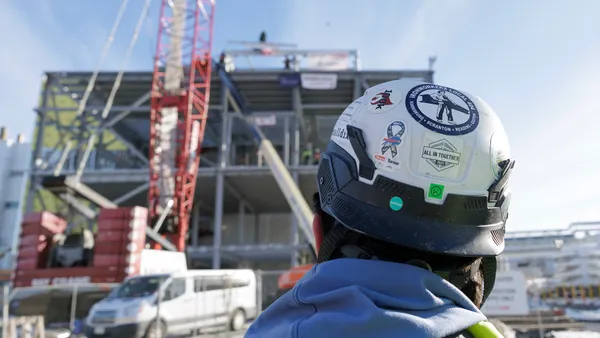Dive Brief:
- Industries like supply chain management and healthcare are benefiting from the perception of technological proficiency, while construction is viewed as “the least technologically competent” by workers, according to a new study.
- Construction ranked at the bottom of 10 surveyed sectors, according to purchase-to-pay software developer Yooz’s 2023 Technology in the Workplace survey, released on April 26. Construction was bested by the automotive and restaurant industries at No. 8 and No. 9, respectively, and was far below manufacturing, at No. 5. The software and healthcare industries ranked No. 1 and No. 2 respectively.
- The report surveyed 600 U.S. professionals with a minimum salary of $50,000 who worked in fields such as healthcare, software and construction. Many were tech-savvy; 64% of all participants said they spent more than half their work day using workplace technologies, with 37% saying they spent more than three-quarters of their day using them.
Dive Insight:
Proficiency is not the only facet of tech that matters to workers — they also see comparative adoption rates as integral to their career mobility, particularly for younger professionals.
When asked, “To what extent do you agree or disagree with the statement: The way my industry views adopting new technology is a barrier to my career advancement,” 50% of workers under 25 in all industries said they either agreed or strongly agreed. This compared to just 30% of workers 25 and older.
In addition to adoption and proficiency, workers also want better training — many in the survey expressed frustration with the state of instruction at their companies. Only 20% of survey participants said their IT departments trained them, and 4% said that responsibility fell to their human resources department. A majority said they were self-taught or relied on informal instruction through their peers or online services.
Construction was ranked the least technologically competent among surveyed industries

The report advocates for industries to adopt more cutting-edge technology. Participants noted technologies such as cloud computing, automation and Internet-of-Things as field-changing. The clear winner, however, was artificial intelligence, with almost a quarter of participants saying it would have the most significant impact on their industries, should it be adopted.
Laurent Charpentier, Yooz’s CEO, said in the report that tech needs to be embraced, particularly by less-familiar businesses. Charpentier also warned that companies who ignore new solutions may eventually drive away younger applicants.
“Companies that fail to invest in workplace technology or provide training risk losing young talent to competitors that are more forward-thinking and committed to innovation,” Charpentier said in the report.
A changing industry
While ranking construction among other industries shows it has a lot of catching up to do, the sector is making steps toward tech proficiency.
AI-based firms are raising millions — Tel Aviv-based safety technology firm SafeGuard raised an $8 million Series A funding round in April. Miami, Florida-based software firm Togal.AI raised $5 million in March, and added OpenAI’s ChatGPT service to its program.
Togal.AI’s CEO, Patrick Murphy, who also runs Coastal Construction, said that the influx of new programs will change the business landscape in the sector.
“The world, I think, was just hit with a massive release of technology. GPT, Google Bard and all of this generative AI that’s coming out, it’s going to transform the economy. And I think construction has as much room to grow and change and adopt as every industry out there,” Murphy told Construction Dive.














